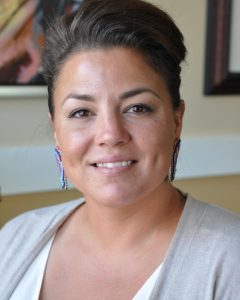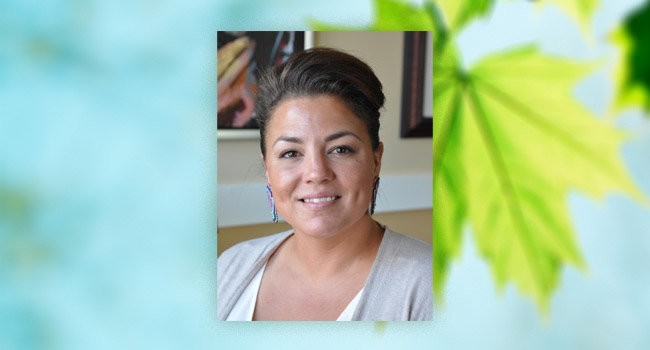The First Nations Tax Commission (FNTC) welcomes Georjann Morriseau as a Commissioner. In June 2019, Georjann Morriseau was appointed for a term of five years.
Commissioner Morriseau is from Thunder Bay, Ontario, and is a former Chief and Councillor of the Fort William First Nation. She is currently the Director of Indigenous Affairs and Government Relations for Resolute Forest Products for Ontario and Quebec.
“I wish to congratulate Ms. Morriseau on her appointment to the Commission,” said FNTC Chief Commissioner Manny Jules. “She has long been an advocate for both the objectives of the First Nations Fiscal Management Act and the collection of property tax on reserve. Her knowledge and experience enable her to make an immediate contribution as a Commissioner.”
The First Nations Tax Commission administers and regulates the taxation regime under the First Nations Fiscal Management Act, including approving local revenue laws, developing sample laws and by-laws, developing and delivering accredited training, and reconciling First Nation government and taxpayer interests.
The FNTC is a shared-governance institution. The Governor-in-Council appoints nine of the Commissioners and the Native Law Centre of Canada at the University of Saskatchewan appoints one Commissioner. There is currently one vacancy.
—
Clearing the Path sat down with Commissioner Morriseau to discuss the FNTC and her new role.
Why it important for you to be a part of the FNTC?
I see the First Nations Tax Commission as supporting the development of our communities. The FMA framework provides a fundamental way for First Nation governments to start to get out from under the Indian Act and begin the process of making decisions for the betterment of their communities. It is meaningful work to help communities achieve their goals of self-sustainability. It is real and tangible work to help communities assert their jurisdiction.
Why is jurisdiction important?
One important aspect of jurisdiction centres on what laws First Nation governments can make to govern themselves. This includes services like education, health, land management, parks, roads and administration. Historically, these services and our lands have been governed for us. We as First Nations have the opportunity and the right to govern ourselves. For example, having tax jurisdiction on reserve provides communities economic stability, the ability to collect revenue to pay for growing their communities and it and opens the door for economic development.
What are your thoughts about property taxation and its growth across Canada?
In the past few years there has been more interest from First Nations who see opportunities for economic development in their territories. First Nations are becoming empowered and are leading examples for other First Nations. First Nations in Ontario have become more interested in discussing the benefits of property taxation. I think many First Nations want to assert their jurisdiction, sometimes it’s just a matter of *how*. This is where the FNTC can help. That’s the type of work we get to do… the how.
Tell us about your experience being an Indigenous woman in leadership.
We are seeing a rise of women not only in leadership, but in decision-making roles. I’m very happy to see Indigenous women recognized for being strong, smart and valuable. In my experience, I’ve had a lot of ups and downs, but it has all been informative. It has helped to broaden my world view. I recognize and appreciate the ability of Indigenous women to relate and connect to each other. It has been helpful to me. Our experience is unique and helps to inform our strength as women and as leaders.


